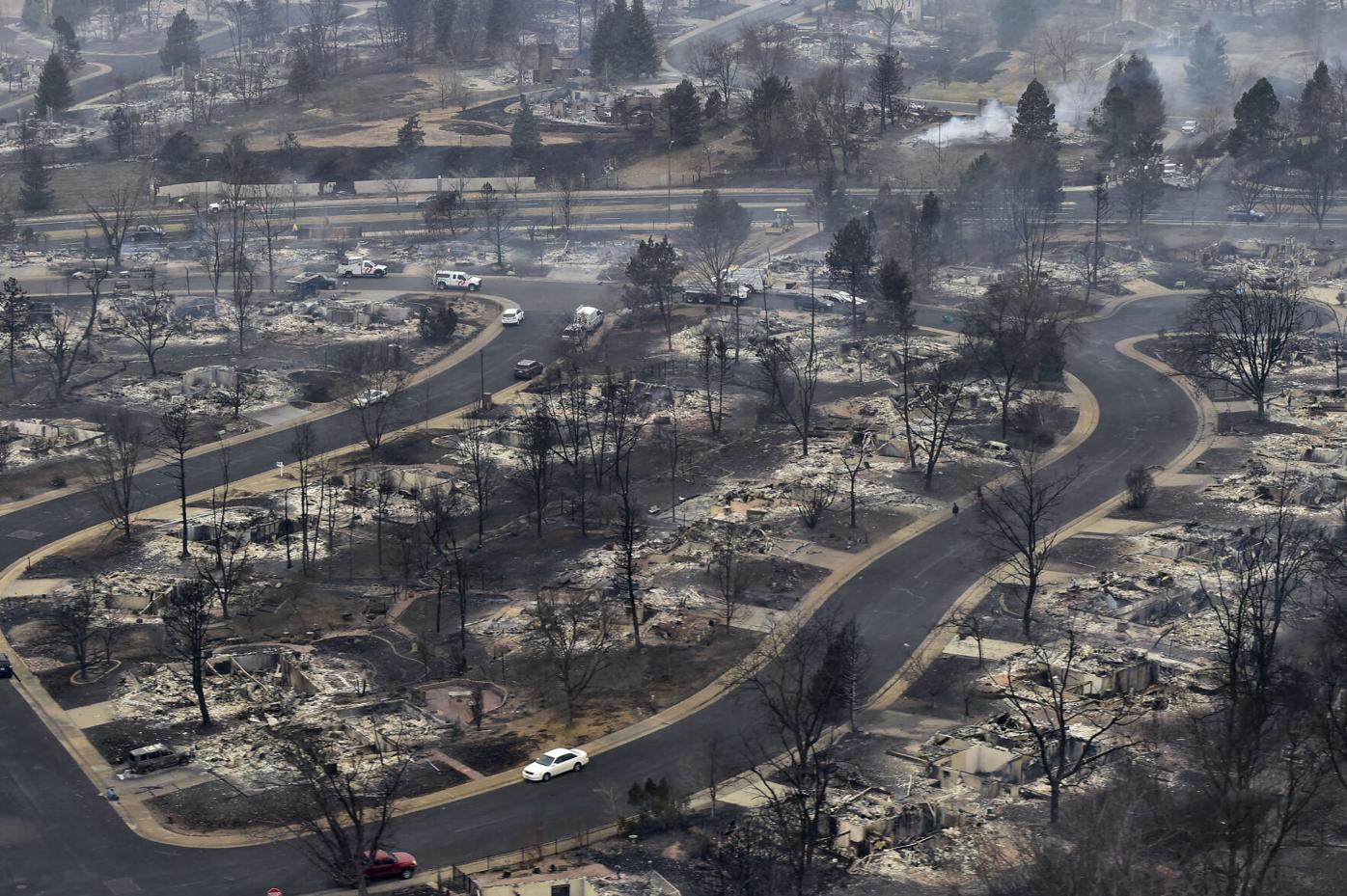The Power in Humanizing the Abstract
In between spreadsheets and poetry, there is sacred, powerful ground for us to connect and mobilize.

In late December, I was driving from Boulder to Denver when I encountered a fast-moving fire just a few miles from my home. This wasn’t a wildfire or a forest-fire, but a suburban fire that was tearing through a major metropolitan area on its way to destroying over 1,000 homes. I witnessed flames leaping off of roofs, panicked neighbors driving to safety across singed fields, and abandoned fire stations, their big doors eerily wide open from when their trucks left in a hurry. This fire was a product of unseasonably dry weeks, high winds, and inexorable warming and stressing. I was in shock; unsure of what to do with my hands, unsure of how to make sense of a fire in a place I knew so well. Something so abstract as climate change became something so visually arresting as panicked neighbors and empty fire stations. Something so big as global warming became something so intimate as homes burned to rubble, their chimneys standing as solemn totems.
Around the same time as the fire, I was reading a book on climate change. The book did everything it was supposed to. It raised alarms by using data and graphs. It cited experts to lend credibility. It had a bibliography that would make my high-school librarian proud. But I felt nothing as I was reading it…I was unmoved. At first, I thought this was because I’m already anxious for us to take climate action. But then I got to the final chapter of the book, where the author took a different approach that hit me unexpectedly. No more stats, no more footnotes. Instead she spoke about how she wrote this book over the span of years when she was trying to get pregnant. She shared about her miscarriage, the rawness of her despair, the pointedness of her sadness, and how she struggled to write a book about “mother nature” when she, herself, was unable to be a mother. She spoke of her ultimate realization that all the research and all the interviews had led her to realize that mother nature is having fertility challenges of her own. These fertility challenges are the decimation of the bee population, the disappearance of birds, the empty oceans denuded of phytoplankton. In this maternal bond between planet and person, she found solidarity. A dry book could not have ended in a more poetic way, and all the data and graphs and quotes were contextualized in not just an abstract struggle, but a human one.
We live in the age of reason where logic and numbers rule the day. We’ve been convinced that we are rational creatures, which means sometimes we feel pressure to cut off the dimensions of ourselves that are not governed by reason. We suppress our emotions, we look past our intuition, we run from our shock. But when we believe that the only acceptable tools of persuasion are those of statistics, logic, and reason, we lose out on a deeper level of visceral knowing and first-hand witnessing. On the spectrum from spreadsheets to poetry, too many choose one of the poles and too few choose the gradations in between, those middle spaces that fuse together the intuitive intelligence of our bodies (and wombs) with the cerebral intelligence of our minds. In between spreadsheets and poetry, there is sacred, powerful ground for us to connect and mobilize.
